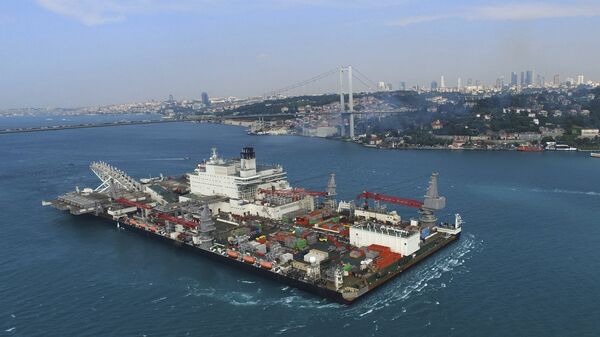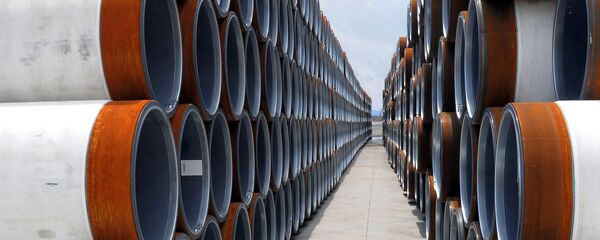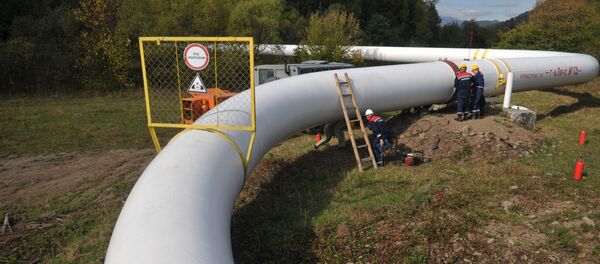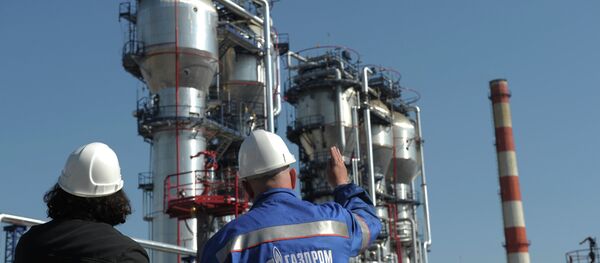BOTAS General Director Burhan Ozcan said that the process of obtaining permits for the construction of the second branch of the Turkish Stream pipeline was "going smoothly, without any pitfalls."
"We have already agreed with them [Gazprom] on this issue, but I cannot disclose the figures [regarding] in what percentage share we will do it," Ozcan told Sputnik on the sidelines of the XXII World Petroleum Congress.
Gazprom and Ankara agree Turkish Stream financing https://t.co/R40k4qsmY9 pic.twitter.com/q86d7HKTcM
— Ian56 (@Ian56789) 12 июля 2017 г.
In an interview with the Russian news network Zvezda, Russian politician Nikolay Starikov said that Turkish Stream and the Nord Stream 2 gas pipeline are not only "means for delivering hydrocarbons to this or that point of the world."
"It's about building geopolitical threads, which either connect or tear apart countries and continents," the politician pointed out.
Also, Starikov noted that the United States will do its best to continue exerting pressure on Russia, including in the gas sector.
"Washington has repeatedly put pressure on Russia. One of the factors of this pressure, as it is quite obvious today, is related to US liquefied gas supplies to Europe. This means that the Americans will pressurize everyone with whom Russia is trying to jointly build gas pipelines to deliver hydrocarbons to Europe," he explained.
"Regarding the situation with Turkish Stream, this is not the first news when the construction of this gas pipeline is reportedly about to begin already tomorrow, but nothing goes on at the end of the day," according to him.
"I want you to understand that the Americans will pressure Turkey in this situation, offering them something else in exchange for a delay or, in general, the complete halt of the Turkish Stream project. Exactly the same situation will be in place with respect to Nord Stream-2. In a word, the world is now experiencing a period that can be called geopolitics of gas pipes," Starikov concluded.
The Turkish Stream project was announced in late 2014 by Russian President Vladimir Putin during his visit to Turkey.
In November 2015, the project was suspended after a Russian Su-24 aircraft was downed by a Turkish F-16 fighter in Syria. A thaw in relations between Moscow and Ankara began last June, following Turkey's apology to Russia.
"Any reefs": Ankara has agreed with Gazprom on financing of "The Turkish stream" https://t.co/wwV98bUZn2 pic.twitter.com/sP9NyBAEF6
— Wordnewus (@Wordnewus) 11 июля 2017 г.
Moscow and Ankara signed an intergovernmental agreement in October 2016 envisioning the construction of two underwater legs of the Turkish Stream gas pipeline in the Black Sea. The annual capacity of each leg is estimated to reach 15.75 billion cubic meters of natural gas.
One leg is designed for gas supplies directly to the Turkish market, the other for gas supplies through Turkey to European countries.
Bulgaria, Serbia and Hungary join Turkish Stream gas pipeline project
— Pravda Report (@engpravda) 10 июля 2017 г.
https://t.co/TWTe6gFAif pic.twitter.com/QzBSdn0MdB
The construction of the first leg began in May 2017, and it is to be commissioned in March 2018. The second leg is to be put into operation in 2019.
The Nord Stream 2 project presumes the construction of two gas pipelines with a combined annual capacity of 55 billion cubic meters of gas.
The new 1,200-km pipeline is slated to be laid along the Nord Stream pipeline route from the Russian coast through the Baltic Sea to a hub in Germany. Shell, Engie, OMV, Uniper and Wintershall are the Russian giant Gazprom's partners in implementing the project.





